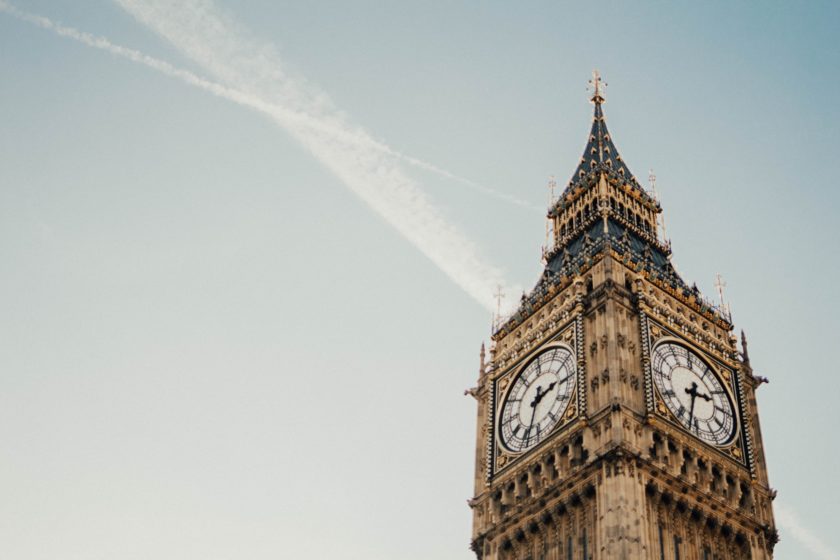Inflation is set to hit 4% next year as the UK economy recovers from the impact of Covid-19 and rising energy prices, the Chancellor said.
In his Autumn Budget speech, Chancellor Rishi Sunak revealed that the Office for Budget Responsibility (OBR) expects the CPI rate of inflation to average 4% over the next year, after rising to 3.1% in September.
Jamie Jenkins, director of policy at Royal London, said: “Given we have already had a number of announcements this year, today’s speech didn’t include a lot of new information. Perhaps the most significant point for savers is that inflation is expected to rise further, averaging around 4% over the course of 2022. For people holding money in cash, this widens the gap further between the returns on their savings and the buying power of their capital. In short, it compounds the inflation risk they face.
“It will also increase the pressure on the Bank of England to raise interest rates which would in turn make borrowing more expensive.”
Laith Khalaf, head of investment analysis at AJ Bell, said: “Inflation raised its head in the Budget speech pretty early on and the Chancellor took the unusual step of using the dispatch box to reaffirm the Bank of England’s inflation target.
“The pressure is now cranking up on the interest rate committee because not only is inflation above target but the Chancellor’s now announced a further round of inflationary policies, such as increases to the minimum wage and public sector pay packets. That now makes an interest rate rise this year even more likely.”
However, the Chancellor revealed better news for UK economic growth, noting that the OBR felt the economy had recovered better than expected.
As a result, the OBR now expects the economy to grow 6.5% this year, up from the 4% growth rate forecast at the last budget in March. In 2022, the economy is projected to grow by 6%, followed by 2.1%, 1.3% and 1.6% over the following three years.
Khalaf added: “The OBR has delivered a massive windfall for the Chancellor through higher economic growth forecasts, freeing up around £35 billion a year. That means the Chancellor has been able to increase spending substantially and also reduce borrowing. It’s an absolute dream forecast for a Chancellor, but Sunak has been both bold and measured by spreading his windfall across investing in public services, providing some tax relief to stressed parts of the economy and cutting government debt.”
IHT, pensions and CGT
Despite speculation that inheritance tax rules and pension rules could change as part of the Budget, the Chancellor touched upon neither.
Already announced, IHT thresholds will continue to be frozen until 2026, in a move that is expected to net the Treasury an extra £985 million, while the Pension Lifetime Allowance will also remain frozen over the next five years, raising a further £990 million for government coffers.
Andrew Tully, technical director at Canada Life, said: “By freezing or maintaining thresholds, the Treasury can expect to bring in over £2 billion in stealth taxes over the next five years. With property prices and investment markets rising, it’s clear that more and more people are going to be caught out by these taxes. These eyes watering sums will inevitably fund some of the significant spending pledges announced today.”
Steven Cameron, pensions director at Aegon, commented: “Pensions have escaped any further cuts in tax relief in today’s Budget and changes to the tax treatment of pension death benefits, despite some commentators labelling these pre-Budget as ‘indefensibly generous’.
“While the DWP promotes pensions as a critical means of saving for retirement, it’s often been speculated that the Treasury views them more as a drain on income tax receipts because of the tax relief pension contributions receive. We hope this new mindset will discourage Chancellors present and future from whittling down pension tax reliefs further.”
Cameron said that bringing pension death benefits into scope of inheritance tax would have been at the “extreme end” of the spectrum of wealth tax reforms and would have had a multitude of knock-on consequences, potentially impacting millions of people.
He explained: “When saving in a pension, the vast majority of people are doing so to provide an income for themselves, and a partner, in retirement, rather than passing on an inheritance. So bringing accumulated pension funds or ‘death benefits’ into an individual’s taxable estate on death would seem particularly harsh and unjustified. We need to encourage more people to save more into pensions, and creating a possible tax liability for ‘good behaviour’ would be highly counterproductive.”
However, Cameron expressed disappointment that the Budget failed to relax the Money Purchase Annual Allowance (MPAA) rules. The current system means anyone over 55 who accesses their pension flexibly has any future contributions to a defined contribution scheme limited to £4,000, but the industry has long called for this to be raised to £10,000.
Cameron added: “Many individuals have been caught unawares by dipping into their pension during the pandemic for short-term financial support. We remain keen that the limit is increased to £10,000 to give individuals more freedom to get their retirement planning back on track. While these rules were introduced to stop people recycling their pensions tax free cash lump sum, the reality is that it is punishing hard working people.”
Meanwhile, Andrew Megson, executive chairman of My Pension Expert urged the government to look at ways to increase greater consumer engagement with pensions.
Megson said: “Given the volatility experienced by savers throughout 2021, the Government was right not to introduce any major pension policy changes. So too was promising offering greater protections for workplace pension savers from higher scheme charges. However, the pension system is far from fixed – nearly 2.1 million UK pensioners are currently living in pension poverty. Mr Sunak can’t afford to be complacent.
“Now, the Government must ensure savers have the necessary tools to effectively plan for retirement. Given the amount of disruption savers have faced in 2021 – the temporary pausing of the state pension triple lock, and uncertainty surrounding pension age increases, to name a few examples – guidance simply won’t do. People need access to independent financial advice.
“I want to see the Government reaching out to regulatory and advisory bodies to achieve this. Without a cross sector effort, we could see future generations of retirees facing disastrous financial consequences.”
The Chancellor also used his Budget to announce that capital gains tax for residential property transactions can now be paid within 60 days, following calls for the 30-day payment period for sellers to pay any CGT owed on residential property sales to be extended.
‘Net pay’ anomaly
A welcome move by the Chancellor was the announcement that individuals making pension contributions to net pay schemes from 2024-25 will be eligible to receive a top up.
The anomaly means low earners miss out on a 20% boost on their pension contributions if their scheme is run on a net pay arrangement.
The decision to resolve the issue follows an earlier pledge in the Conservative Party 2019 election manifesto to overhaul the current system.
Cameron said: “We’re delighted to see the Government allowing in its Budget spending figures for a resolution to the ‘net pay’ anomaly that has led to the lowest earners in ‘net pay’ schemes losing out on tax relief on their pension contributions. This has been a long standing injustice and it’s great that the Government is delivering on a long standing commitment to sort this out, It’s estimated to benefit 1.2 million individuals by an average of £53 a year.
“The ‘net pay’ anomaly means non-taxpayers in pension schemes which have opted to administer tax relief on what’s called a ‘net pay’ basis have lost out compared to those schemes operating the alternative ‘relief at source’ approach. HMRC grants non-taxpayers in ‘relief at source’ schemes basic rate tax relief but their counterparts saving in net pay schemes currently receive nothing, which means they are effectively losing out. This is a true ‘levelling up’ measure although some will be disappointed that it won’t come into effect until 2025-26.”
Clare Moffat, head of intermediary development and technical at Royal London, commented: “This announcement is a welcome one particularly for women who are impacted most.
“For many people the amount of tax relief which they would receive in a net pay or a relief at source scheme would work out the same but this isn’t the case for lower earners. Someone in a relief at source scheme, who pays no or little income tax, will still receive 20% tax relief which is added to their pension. But someone who earns the same in a net pay scheme would receive no tax relief for any amount under the personal allowance. This means that they would have less at retirement.
“Solving this issue in relation to low earners and the two main ways to receive tax relief was never going to be simple. However, this announcement acknowledges that a change is necessary. According to Government statistics, 75% of those impacted are women and there is already a large gender gap in relation to pensions with women having less at retirement than men. Often this is due to the fact that they have worked part time in lower paid jobs and if they have been in a net pay scheme, they might have received little or no tax relief.”































